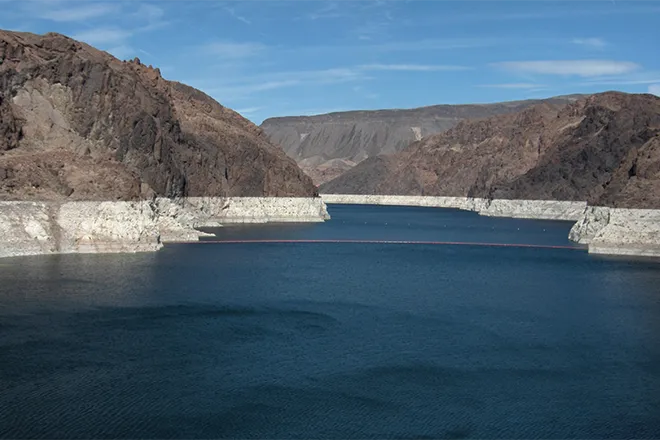
Daily Audio Newscast - December 23, 2024
Six minutes of news from around the nation.
Suspect held after woman set on fire in NY subway car dies; Trump threatens to take back Panama Canal over 'ridiculous' fees; A year of growth for juvenile diversion programs in SD; The ups and downs of combating rural grocery deserts in ND; Report: AZ one of eight Western states that could improve conservation policies.
Transcript
♪♪
The Public News Service Daily Newscast, December the 23rd, 2024.
I'm Mike Clifford.
First, to New York, where the NYPD took a man into custody Sunday in connection with the death of a woman who was set on fire on a subway earlier in the day in Brooklyn.
That, for "The New York Times."
"The Times" reports the man the police took into custody calmly approached the woman and used a lighter to set her clothes on fire.
That, according to New York City Police Commissioner Jessica Tish.
Next, for "The Guardian," Donald Trump has demanded the Panama Canal be given back to the U.S. if Panama did not manage the waterway in a fashion that was acceptable to him.
And he accused the Central American country of charging excessive rates for use of the Ocean Connecting Ship Passage.
Meantime, nearly 2,000 South Dakota juveniles were successfully diverted from the state's court system this year, according to a new report.
A 2024 law has added fiscal incentives for counties to continue these diversion efforts.
When low-risk youth are diverted from the court system, they are 45 percent less likely to reoffend, according to the Annie E. Casey Foundation.
Diversion can take many forms, from mural painting to skateboarding programs.
State's Attorney Laura Retzel in Pennington County, where diversion programs have been used for about 25 years, says they can help unveil the root cause of a child's misbehavior.
Diversion gives you a chance to really get to know that young person and get them the help that they need, because it's not always obvious.
For example, she says a child caught stealing may be doing so to support a drug habit and would be best served through addiction counseling.
The Department of Social Services has also expanded community-based treatment options for youth, including functional family therapy and aggression replacement therapy, according to a drafted 2024 report from the state's Juvenile Justice Oversight Council.
I'm Kathleen Shannon.
Next to North Dakota, where several rural communities are strategizing how to slow the pace of local grocery stores shutting down.
Some are making use of state grant money to aid their efforts, but challenges remain.
In North Dakota's Walsh County, the Rural Access Distribution Cooperative has been on the leading edge of establishing local grocery store co-ops, where a handful of smaller shops buy items in bulk together.
The initiative was eventually awarded a state grant to buy a bigger truck and van, making supply deliveries more manageable.
Cooperative President Alexander Beda says they continue to see progress with increased sales and better options for area residents.
So there's less waste, less cost, and we've significantly improved the quality of food.
However, other elements of the initiative still face hurdles.
That includes utilizing food lockers, where customers can buy their food online and pick it up when they choose.
But Beda says they haven't been able to make the technology work.
In 2023, the legislature approved $1 million for interested communities to sustain grocery service in smaller towns with limited access.
I'm Mike Mowen.
This is Public News Service.
We head next to Arizona, a state that could be doing more to improve conservation policy.
That's according to a new report by the Center for Western Priorities.
The Center's Rachel Hamby says its latest scorecard looks at three categories - land protection and access, responsible energy development, land use, and planning for growth.
She says Arizona fares well on protecting public land access but should do better in growing support for public land conservation and foster stewardship of natural resources as the state's population grows.
In any of the benchmarks that we looked at in the scorecard, any state can find another Western state that's doing well, that provides a successful model that they could learn from as they're trying to address a policy area where maybe they had room to improve.
Hamby says Western states have a lot in common when it comes to the unique landscapes and conservation challenges they face.
But during the latest legislative session, Arizona lawmakers passed various anti-public land resolutions, which oppose the 30 by 30 initiative, which aims to protect 30 percent of the Earth's lands and waters by 2030.
I'm Alex Gonzalez reporting.
And school bus transportation challenges are impacting one central Indiana community.
Bus driver shortages and late arrivals to school have also been documented by the education advocacy group Rise Indy.
The organization says data show a correlation between these transportation hiccups and student outcomes and educational equity.
Catherine Sheehy with Rise Indy says some Indianapolis public school students are facing, quote, "a literacy crisis."
71 percent of Marion County students, grades three through eight, are performing below grade level in literacy.
If there was an innovative way for them to get to school, then they can attend school regularly and gain the skills they need to succeed, including learning to read.
I'm Terry Dee reporting.
Meantime, Dallas is one of a handful of cities across the U.S. with an ordinance to protect renters from extreme summer heat caused by climate change.
In 2017, the city passed an ordinance requiring landlords to provide air conditioning to their tenants.
The city's Rosanna Sochick says while the move is rare, it's gaining momentum.
It is becoming more and more popular, especially in the bigger cities.
And, you know, with these recent heat waves, I have had people even, like, reaching out from even as far as, like, London, England, who are just now trying to implement that same policy in their city 'cause there are people dying, you know, during the heat waves.
She says the ordinance requires landlords to provide AC units that keep apartments 15 degrees cooler than the outside temperature.
I'm Freda Ross reporting.
This story was produced with original reporting from Isabel Kemp for "Smart Cities Dive."
This is Mike Clifford.
Thank you for starting your week with Public News Service.
Member and listener supported.
Hear us on interesting radio stations, your favorite podcast platform.
Find our content and trust indicators at publicnewsservice.org.
















